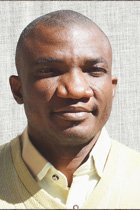Lunch seminar: Whistleblowing in Nigeria’s Unstable Ethical Climate
Nigeria mirrors a society where persistent wrongdoings by public officials breed systemic corruption and offer justifications for the proliferation of anti-corruption laws. There are for instance about nine extant regulations that deal directly in issues relating to corruption and fraud control in the country, most recent of which is the Whistleblowing Policy introduced by the federal government in December 2016. Among the anti-corruption regulations in place, the whistleblowing policy is the only one that offers financial incentives for reporting frauds. Using ethnographic evidence from widely publicised cases of corruption and whistleblowing in Nigeria, this article critiques the incentive schemes embedded in the whistleblowing regulation. It argues that the prevailing ethical climate and the complicities in law enforcement make the cost of reporting corruption higher than any conceivable incentives. The article suggests that the success of a whistleblowing regulation in an environment such as Nigeria would depend on government’s readiness to shield whistleblowers from the enormous risk of retaliation and to develop an incentive system that guarantees rewards for fraud reporting.
This lunch seminar is organized within the framwork of the CRG Governance, entrepreneurship and inclusive development.
Speaker
 Abel E. Ezeoha is a LeidenASA visiting research fellow from April up to and including June 2018. During his fellowship, he will be collaborating with Dr. David Ehrhardt and Prof. Chibuike Uche to carry out a study on the tradeoff between the risks and the benefits of the whistle-blowing policy recently adopted as part of the Nigerian government’s war against corruption.
Abel E. Ezeoha is a LeidenASA visiting research fellow from April up to and including June 2018. During his fellowship, he will be collaborating with Dr. David Ehrhardt and Prof. Chibuike Uche to carry out a study on the tradeoff between the risks and the benefits of the whistle-blowing policy recently adopted as part of the Nigerian government’s war against corruption.
Abel E. Ezeoha holds parallel faculty positions in the Department of Economics and the Department of Banking & Finance at Ebonyi State University, Nigeria.

